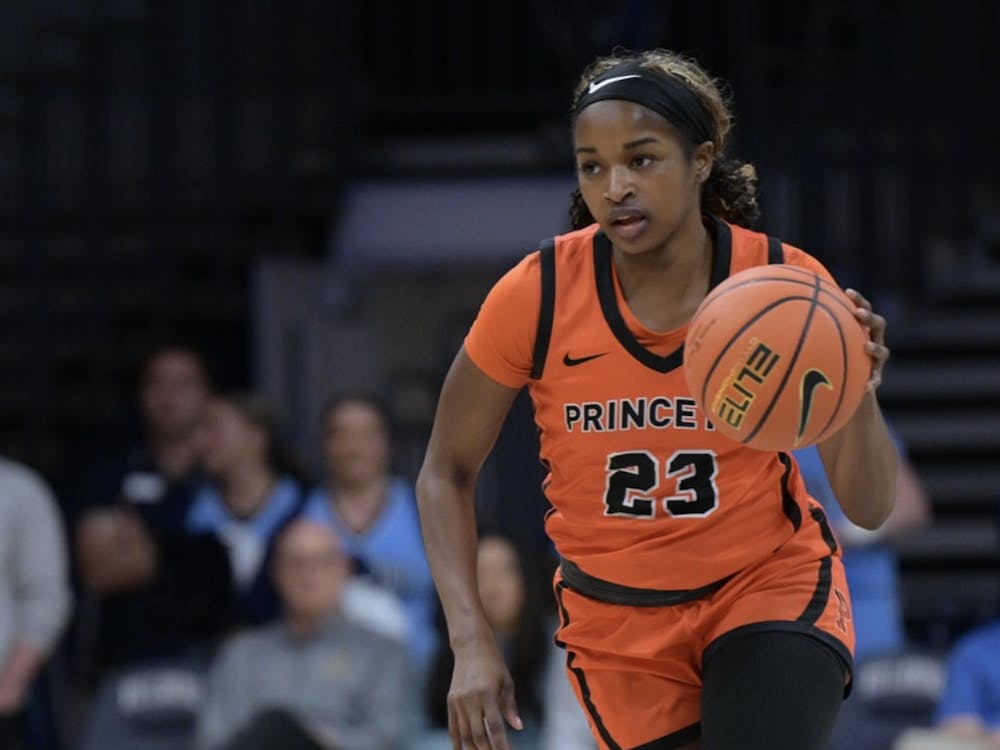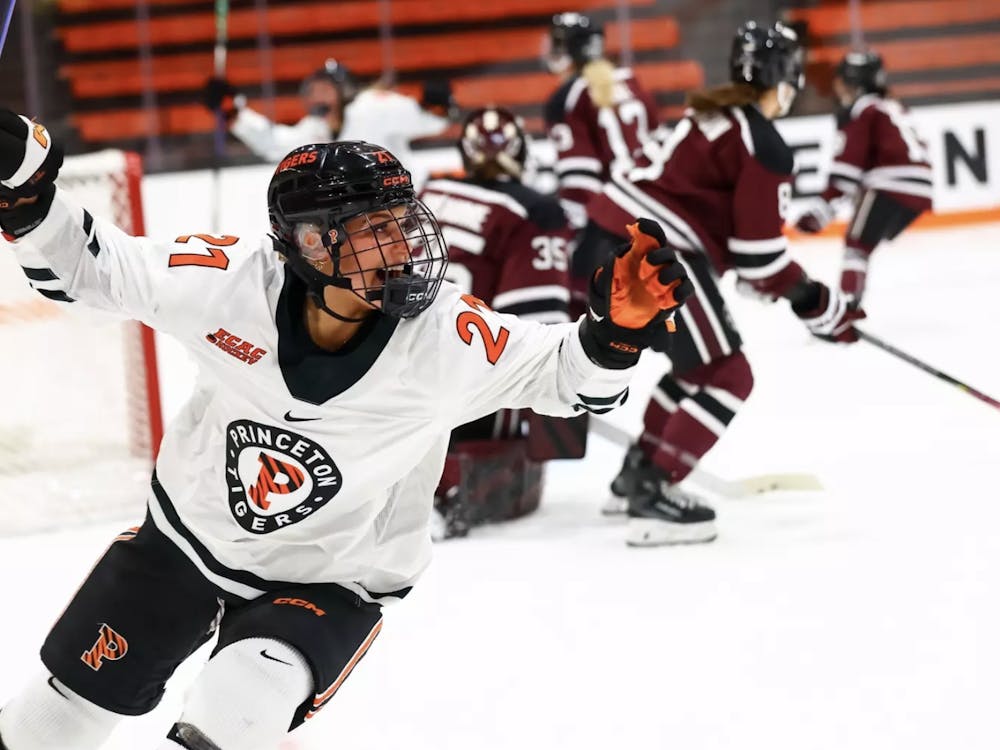Rasheed currently has 1,551 points, 132 shy of the Tigers’ all-time leader, Sandi Bittler ’90. At this season’s pace of 17.3 points per game, the senior would approach that mark by the end of the regular season and narrowly pass Bittler in a potential postseason game. Rasheed would have left that mark in her dust weeks ago if not for a torn ACL that sidelined her for more than half of the 2010-11 season; that she could still challenge the record despite sitting out 17 games is rather amazing.
But while it would be fitting to see Rasheed, the face of Princeton’s best teams ever, hold the all-time program record, her legacy doesn’t need any help. With a month or so left in her college career, Rasheed has already established herself as the best player in Princeton history — and possibly the best the Ivy League has ever seen.
At her current pace, Rasheed will end her career in 11th place among all-time Ivy League scoring leaders; had she been able to play all of 2010-11, she would be on track to finish fourth and have a shot at 2,000 career points. But scoring tells only a fraction of the story; since her freshman year, Rasheed has been one of the league’s top defenders and rebounders. With a full sophomore year, Rasheed would also be on pace to finish in the Ivy’s top 10 in career rebounds and steals.
One of the biggest weaknesses in Rasheed’s game is a tendency to have long streaks of inefficient shooting. Though her season average is 45 percent, fifth-best in the league, she has had a few particularly cold games over the years, including a 3-for-17 performance in a November loss at Marist.
But even on those off days, Rasheed is extremely valuable to the Tigers due to her efficiency in other areas. Though she posts gaudy scoring numbers, Rasheed is not a ball-stopping volume shooter; most of her shots come in the flow of Princeton’s offense, and many of them are free opportunities generated by her own offensive rebounds. For a player with such a large offensive role, she hardly ever turns the ball over, amassing more assists than giveaways in each of her four seasons. And her energy and toughness are legendary; she currently leads the league in steals and is second in rebounds.
All of those secondary skills were on display Saturday night when the Tigers hosted Harvard, arguably the Ivy League’s second-best team. Rasheed faced one of her toughest matchups of the season, often being guarded by Temi Fagbenle, an agile 6-foot-4-inch forward who started for Britain in the 2012 Olympics. Rasheed shot an ugly 4-for-17 from the floor — and yet, she was still clearly the best player on the court, making up for her missed shots with other plays. Rasheed earned 14 free throws (making nine), grabbed 10 rebounds, doled out two assists without giving the ball away once and was responsible for five steals as well as two other uncredited turnovers.
“She’s the most impactful player the Ivy League has ever seen, and I’m really glad she’s a Tiger,” head coach Courtney Banghart said after Saturday’s game.
That statement means a lot coming from Banghart, who spent two years playing against the current holder of the Ivy League’s Greatest-of-All-Time label. Allison Feaster played for Harvard from 1994-98, winning three Ivy Player of the Year awards and becoming the league’s only graduate to play in the WNBA. She ranks second in the Ancient Eight annals in career scoring, third in rebounding and third in steals, the only player to best Rasheed — who could follow Feaster to the WNBA — in all three categories.
But where Rasheed’s record is unmatched by Feaster, or any other player in Ivy League history, is team success. Princeton is headed toward a fourth straight outright Ivy championship, unprecedented in the modern era; Rasheed was only on the court for three of those titles, but those were also the three seasons in which Princeton was or is undefeated. In fact, even that understates her case — even if the Tigers had spotted every opponent 10 points before the opening tip, Rasheed would still be a perfect 35-0 in Ivy League play.
Feaster won three conference titles with Harvard, but the Ivy League was one of the nation’s weakest in the mid-’90s. The Crimson never received a seed higher than No. 14 in three NCAA tournament appearances and was put on the No. 16-seed line twice; even in 1996-97, when it was undefeated in the conference, Harvard went just 6-6 in non-league play, losing to several mid-majors.
Princeton, in contrast, has not gone worse than 9-5 outside the Ivy League in Rasheed’s tenure despite playing one of the nation’s toughest non-conference slates in each of the last two seasons. Her Tigers have been rated much more highly than any of their league’s predecessors, being seeded 11th and ninth in the NCAA tournament and breaking into the AP Top 25 last March, an Ivy League first.
Only one area of Rasheed’s resume remains blank: postseason victories. As a senior making her third March Madness appearance in 1998, Feaster scored 35 points in an upset over Stanford, which remains the Ivy League’s only NCAA tournament win to date. To complete her case as the conference’s best player ever, Rasheed may need to follow those footsteps next month.

“I don’t think she’s played the game she’s wanted to play in March yet,” Banghart said. “If she does, we’ve got a good shot to win.”







